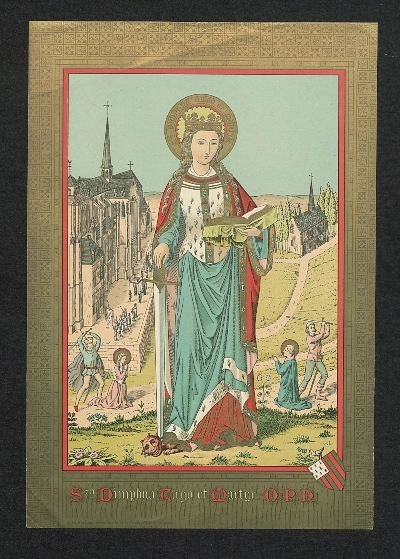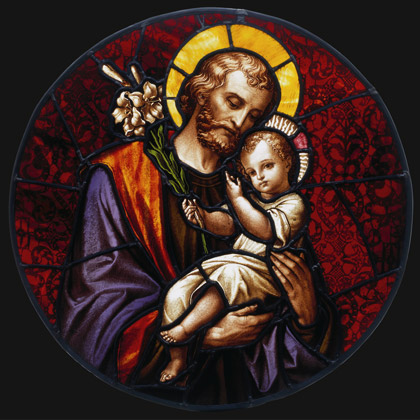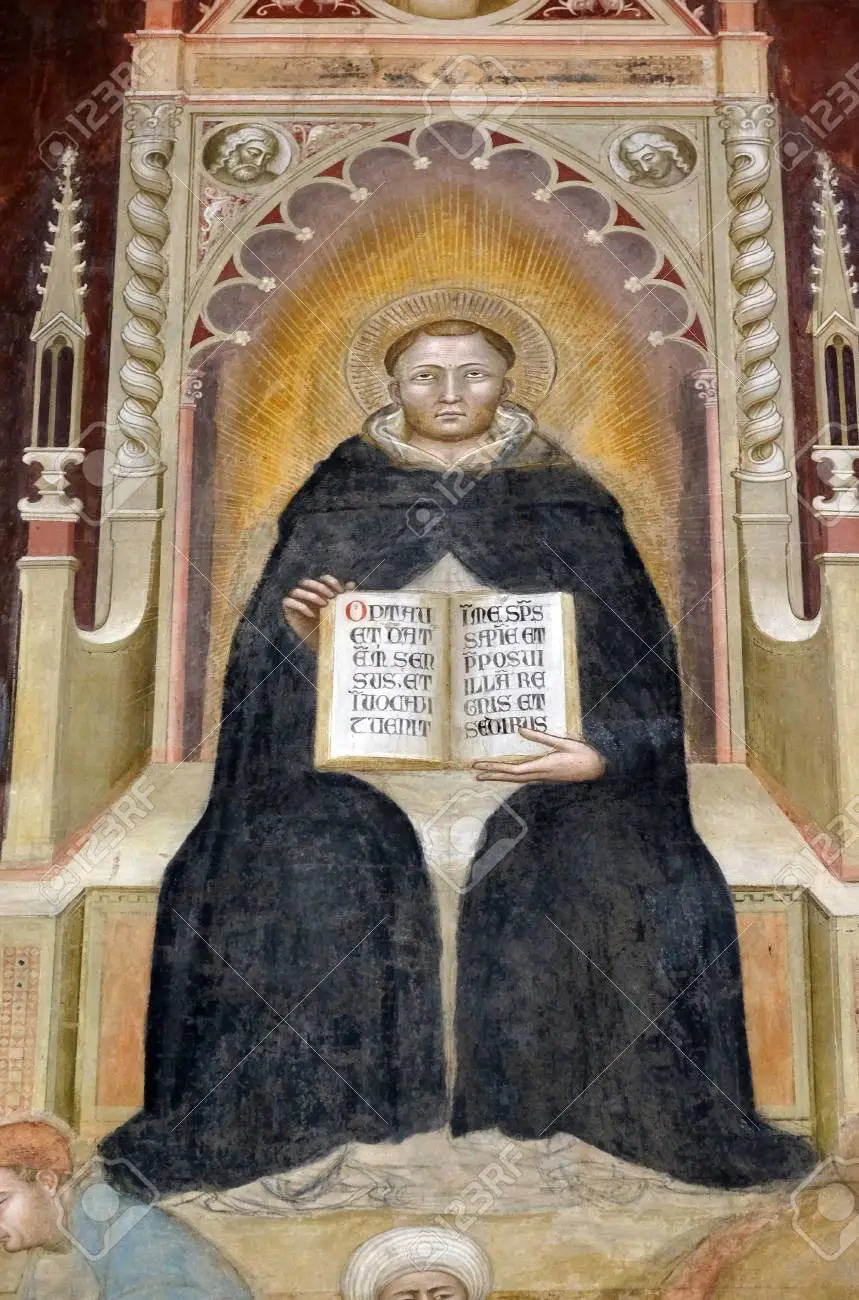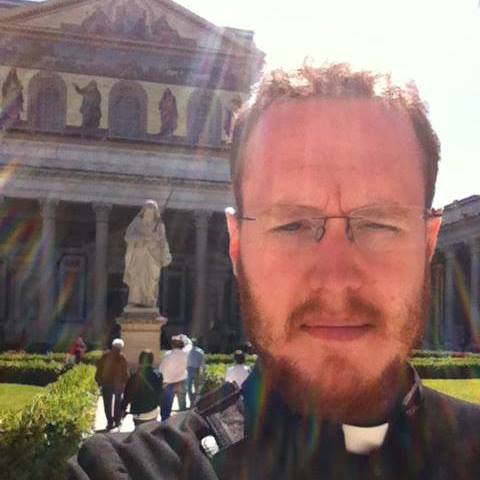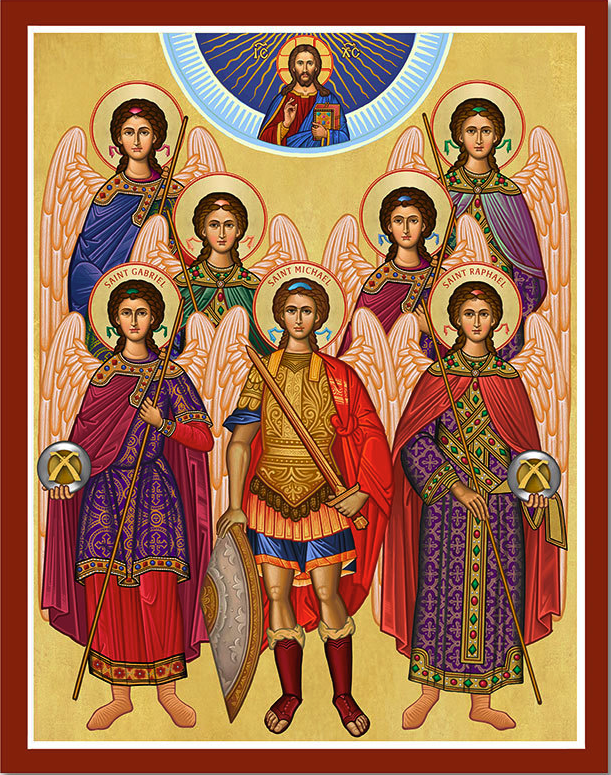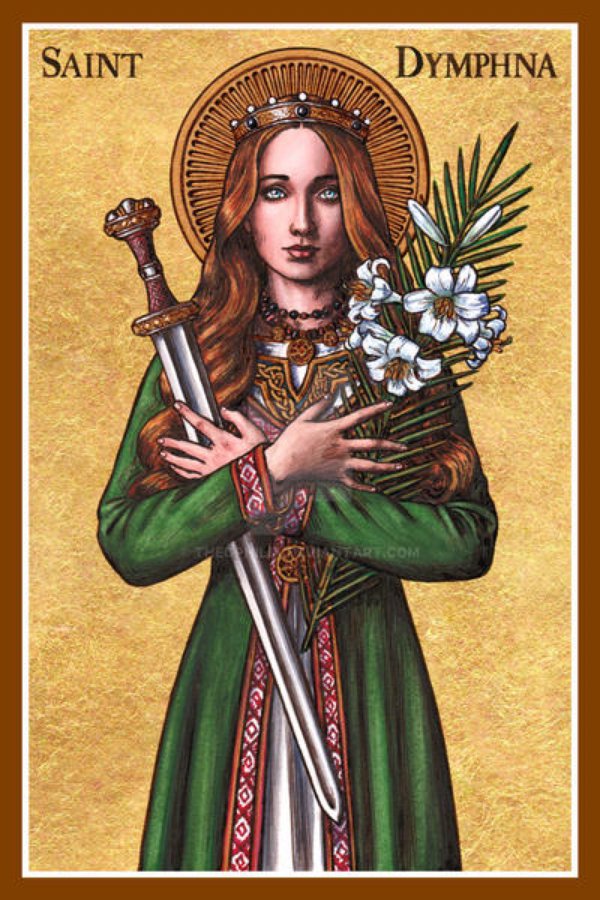
-please click on the image for greater detail

-by Sean Fitzpatrick
“Euripides said, “Those whom the gods destroy, they first make mad.” That ancient wisdom is playing out before our eyes in the modern world. No one can ignore the unhappiness shackling society, but most pretend to, as a maniac might.
Yesterday, May 15, was the feast day of a girl who resisted an insane, uncouth attack in the name of sanity and decency, at the cost of her home, family, and life. Catholics in the United States especially, as we hopefully anticipate the overturning of a national injustice, should remember this little Irish saint named Dymphna, for we, too, are pressured by the dictates of diseased minds and a culture of madness. Dymphna knows of our plight, as a hero who lost her head to a man who had lost his mind.
St. Dymphna lived in Ireland during the seventh century, the daughter of a minor king named Damon. At age fourteen, she consecrated herself to Christ, following the faith of her pious mother. But Dymphna’s mother died, and left Damon devastated.
The king’s sorrow over the loss of his wife led to a complete mental collapse. His counselors, terrified by the rantings and ravings of their master, perversely suggested he wed his daughter, Dymphna, who bore a striking resemblance to the woman Damon had loved.
In his madness, Damon pursued his daughter, who fled with her guardian, Fr. Gerebran, to what is today Belgium. There she used the money she had brought with her to build a hospital for the poor.
Using her currency, however, put her father on her track. He appeared in a rage, sword in hand, and slew Gerebran. Dymphna, bereft of her only guardian and standing on the threshold of death, still held fast—so Damon slashed off his daughter’s head.
Today, Dymphna is the patron saint of people who suffer from mental disorders, sexual assault, and anxiety. There are many in our time of perversity who suffer from such things. But today’s perversities are not considered perversities at all: pornography; abortion; transgenderism; homosexuality; and clear corruption in media and politics, and even in the Catholic Church.
The agenda of permissiveness sprawls and spreads, removing objective boundaries. At the same time, the free world has also launched several successful systems of restriction and subservience. When contradiction reigns, insanity prevails, for without common sense, there is no natural way to view the world.
Damon’s deranged quest to marry his daughter, in a horror of contradiction, shows how contradiction both makes men mad and marks them as mad—for madmen live by contradiction, in one way or another. This is precisely the sickness saluted in America. Whereas we should fly from it all, as Dymphna did, we learn to live with it. Skepticism, cynicism, and liberalism soon set in, as they must to assuage the soul in such a world. But the culture of contradiction still hangs over us, and people can’t help but be driven out of their minds.
If liberalism gradually dilutes traditional civilization unto destruction, it is not liberating. It is enslaving. It is mental paralysis, locked away in a padded cell with nothing but itself, as G.K. Chesterton famously described in Orthodoxy. The land of the free is becoming a prison, and until identity is loved over ideology, the craziness will continue. Patriotism is impossible when regional character is destroyed, and a people who have no true, meaningful love for their country have lost touch with a basic tenet of human piety and human sanity.
Dymphna showed, together with the holy Gerebran, as all the saints do in some fashion, that men and women can’t be their own saviors. That is a contradiction. Those who surrender to the insanity of contradiction only perpetuate the illusion and the contagion in themselves and in others. They strive to justify their sins and sanctions and redeem those who would live without the Redeemer.
Dymphna is a saint for us all, being brave and unyielding against unreasonable and violent oppression. Following her example, we can face the mental disease caused by a culture of contradiction. Millions of Americans are forgoing their common sense, carried along the stream of insanity like dead things, afraid to take a stand or make a stir. Much of our fear and frustration is rooted in a feeling of helplessness.
We are not helpless, though. We can follow common sense. And if that means being martyrs for truth, in whatever form that may take, then so be it.
Some things, Dymphna teaches us by her life and death, are unendurable and must be steadfastly resisted. Through her intercession, may we all break free from the straitjackets of virtual reality, soft totalitarianism, and the culture of death. That will mean facing the uncomfortable facts of uncommon sense, secular preoccupation, and ecclesial ineptitude. But the truth will set us free—and in that freedom, we will be happy.”
Prayer to St. Dymphna
Good Saint Dymphna, great wonder-worker in every affliction of mind and body, I humbly implore your powerful intercession with Jesus through Mary, the Health of the Sick, in my present need. (Mention it.) Saint Dymphna, martyr of purity, patroness of those who suffer from nervous and mental afflictions, beloved child of Jesus and Mary, pray to Them for me and obtain my request.
(Pray 1 Our Father, 1 Hail Mary, and 1 Glory Be.)
Saint Dymphna, Virgin, and Martyr pray for us.
Love,
Matthew


